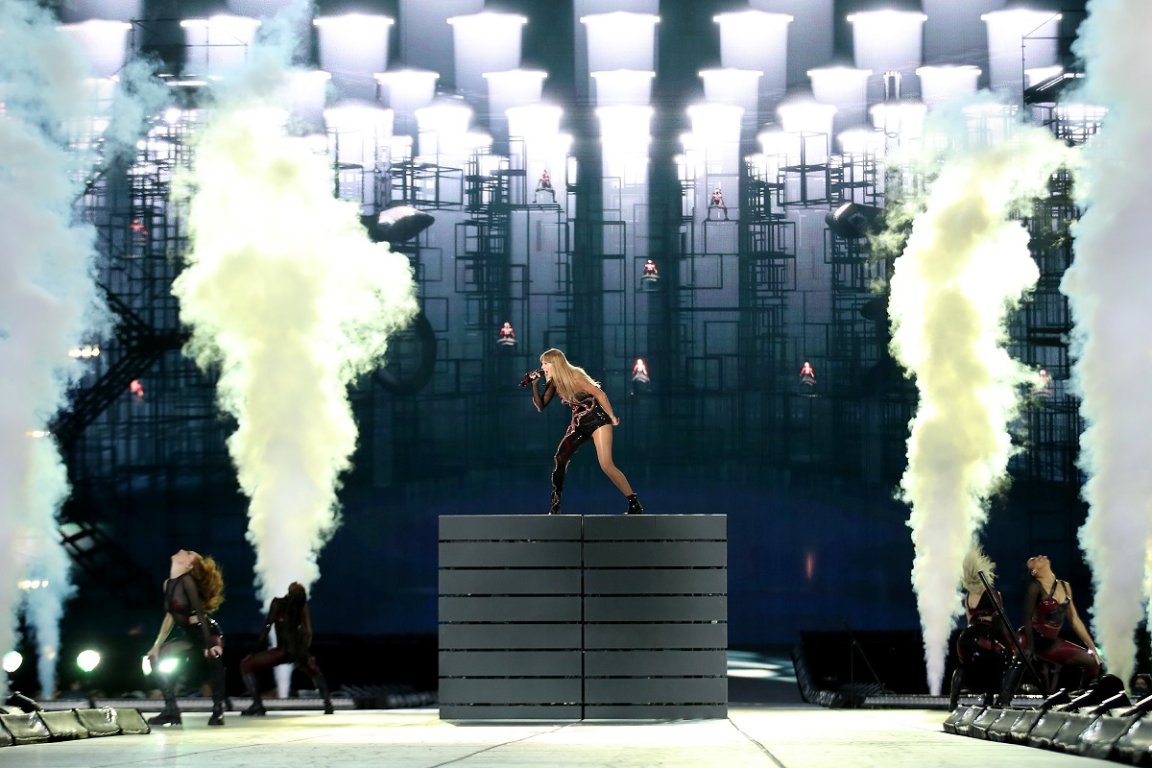
Quake It Off
Taylor Swift’s Eras Tour has broken attendance records, launched the beginnings of a coup against the widely-despised Ticketmaster, and — among other accomplishments — caused several US lawmakers to utter her lyrics in bad legislative puns that now have an eternal home on the congressional record. Now, per CNN, Swift can add another feather to her Red-era bowling hat: causing rumblings equivalent to an actual earthquake.
According to CNN, Swift’s weekend stop at Seattle’s Lumen Field stadium registered seismic activity equal to that of an hours-long 2.3 magnitude earthquake. Shake, shake, shake indeed.
“I grabbed the data from both nights of the concert and quickly noticed they were clearly the same pattern of signals,” Jackie Caplan-Auerbach, a seismologist and geology professor at Western Washington University, who first caught wind of the seismic shift in a Pacific Northwest earthquake group that she moderates on Facebook, told CNN. “If I overlay them on top of each other, they’re nearly identical.”
Hits Different
Per CNN, the “Swift Quake” has invited comparisons to Seattle’s 2.0 magnitude “Beast Quake” of 2011, when a touchdown from former Seattle Seahawks running back Marshawn “Beast Mode” Lynch caused earthquake-level cheering and applause.
That said, while any crowd-caused seismic shaking is impressive, the Beast Quake, like other sporting event-caused quakes, was fairly shortlived; the Swift Quake, on the other hand, apparently went on for about ten hours.
“The primary difference is the duration of shaking,” Caplan-Auerbach told CNN. “Cheering after a touchdown lasts for a couple seconds, but eventually it dies down. It’s much more random than a concert. For Taylor Swift, I collected about 10 hours of data where rhythm controlled the behavior. The music, the speakers, the beat. All that energy can drive into the ground and shake it.”
“What I love is to be able to share that this is science,” she added. “It doesn’t have to happen in a lab with a white coat. Everyday observations and experiences are science.”
Speaking to The Seattle Times, Caplan-Auerbach said she’s now looking forward to studying any seismic shaking caused by Beyoncé Knowles’ upcoming September show at Lumen Stadium.
“Science can happen in two ways,” she said. “Sometimes you’re handed data by surprise, like this one… but other times you can say, ‘Hey, we know this is going to happen, what data do we want?'”
More on Taylor Swift: They Tried to Pay Taylor Swift to Shill FTX, but She Shook Them Off